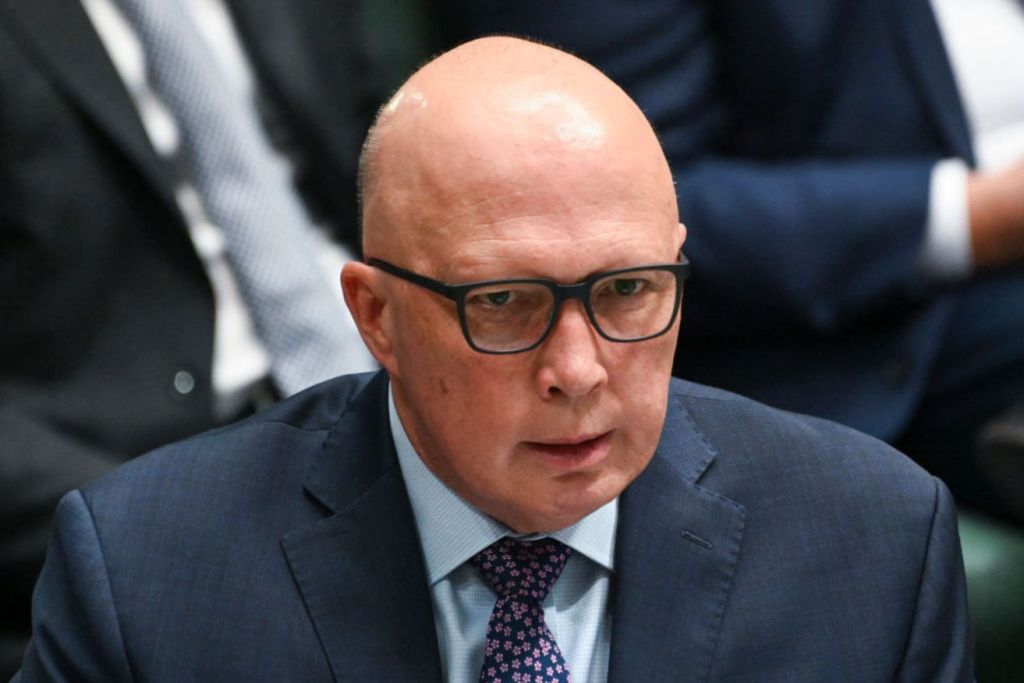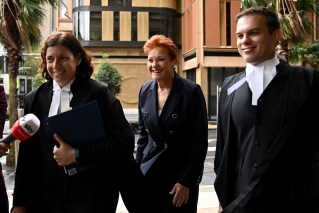Elon Musk baits Australia to act in moderation versus free speech battle

Source: X/Tanya Plibersek
A high-stakes battle over what content can be shown on social media platforms has united the government and opposition, but Elon Musk’s promise to fight takedown orders from Australia’s online watchdog “is much bigger than X”, experts say.
Elon Musk announced that X would fight any attempt by Australia’s eSafety Commissioner to remove content related to the Wakeley stabbing and would not pay any fines imposed.
Meta, the owner of Facebook and Instagram, agreed to remove the content, but Musk – a self-described ‘free speech absolutionist’ – is adamant that footage of the live-streamed, non-fatal stabbing will remain on the platform.
Tweet from @elonmusk
Dr Jay Daniel Thompson, a senior lecturer in professional communication at RMIT University, said the people in charge of content moderation on platforms like X aren’t making the decision to reject the application.
“We’re talking about people who aren’t at the coal face. We’re talking about people like Elon Musk,” he said.
“Traditionally speaking, freedom of speech would be regarded as problematic and curtailed if it involved harm.”
He said it is likely that, if it goes to the court, the situation will become a test case for future moderation challenges.
“Musk has successfully framed it as another free speech war in a liberal democracy,” he said.
“It is much bigger than just X and bigger than the eSafety Commissioner.”
Free speech or moderation?
Musk and X have previously defended the decision to remove content at the request of the Turkish government, claiming it is “par for the course for all internet companies”.
Dr Marian-Andrei Rizoiu, an associate professor who leads the Behavioral Data Science lab at the University of Technology Sydney, said there is little economic incentive for a social media platform to moderate content.
“They see themselves as the providers, where people can just go and talk, and they typically believe they should not be intervening in what people talk about because it is not their mandate,” he said.
“Their mandate is to build the servers and the interface.”
He said Australia has punched above its weight in these types of situations.
“They are less likely to accept a takedown notice in Australia because it is not the kind of country which will just forbid X within a week of it not complying,” Rizoiu said.
“If they bow here, they will need to bow elsewhere.”
The platform is now facing fines after failing to comply with the takedown order from eSafety Commissioner Julie Inman Grant.
Last year, Grant fined the platform $610,500 after it failed to answer questions on how it was handling online child abuse material on the platform.
United opposition
Assistant Treasurer Stephen Jones said the government is looking at “all of the laws across these areas to ensure that our regulators have the power to do what is necessary to keep our online platforms safe”.
“Twitter can’t be the place where criminals go, where cranks and crooks go to propagate their messages,” he told the ABC.
“At the moment it’s a factory for trolls and misinformation that damages the brand of the company, but it does a lot of damage to social cohesion in the process.”
Musk’s stand against the eSafety Commissioner’s takedown notices has only created support for the eSafety Office among the major parties.
Opposition Leader Peter Dutton said there is now a bipartisan position on X and Musk’s comments.
“We know that the companies, and we’ve seen some of the comments from Elon Musk overnight, they see themselves as above the law, and Australian law should apply equally in the real world as it does online,” Dutton told the ABC.
“They’re worried about the flow onto other markets if Australia’s laws are upheld, and that’s all the more reason for us to take a stance. It’s important for us, but for other democracies as well.”

Peter Dutton has stood with the Albanese government against X. Photo: Getty
Online spaces have lit up in support of Musk’s libertarian vision of the X and the internet.
Rizoiu said fact checking, debunking and moderation can create a ‘‘backfire effect’’.
“By removing it, you’re still adding attention, your action is creating tension in the online environment,” he said.
“It is a known fact that any sort of moderation efforts, debunking or simply fact checking can lead to a lot of inflammation of the content.”








